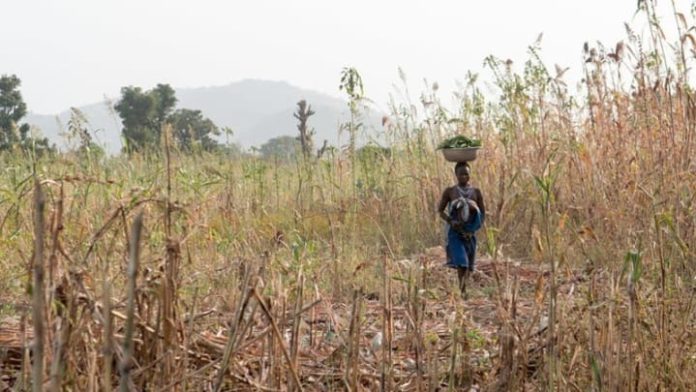Nigeria is bracing herself for a staggering surge in food insecurity, with an estimated 26.5 million people expected to face the grim reality in 2024.
This revelation emerged during the recent discourse of the October 2023 Cadre Harmonisé analysis on food insecurity, jointly presented by the government of Nigeria and her partners.
The unsettling statistics, it was noted, paint a dire picture, indicating that around 9 million children are now at risk of acute malnutrition of wasting.
Shockingly, 2.6million children could also find themselves grappling with Severe Acute Malnutrition (SAM), requiring urgent and critical nutritional interventions.
This projection for 2024 marks a substantial escalation from the already alarming figure of 18.6 million people experiencing vulnerability to food insecurity between October and December 2023.
Multiple factors, it was also noted, contribute to this worrisome trend, including ongoing conflicts, the adverse impacts of climate change, skyrocketing inflation, and the escalating costs of both food and essential non-food commodities.
In the north-eastern states of Borno, Adamawa and Yobe (BAY), persistent violence is impeding access to food, while northwest and north-central states, including Katsina, Sokoto, Kaduna, Benue and Niger, grapple with armed banditry and kidnappings, aggravating economic struggles.
The Permanent Secretary, Federal Ministry of Agriculture and Food Security, Dr. Ernest Umakhihe, highlighted the significance of the Cadre Harmonisé during a presentation in Abuja, saying that despite government’s efforts, external challenges such as the global economic effects of COVID-19 and the Russia-Ukraine war persist, creating disruptions in the nation’s food systems.
The projections indicate that without immediate intervention, the number of people experiencing food insecurity could skyrocket to 26.5 million nationwide by the peak of the 2024 lean season, with an additional 4.4million affected in the BAY states.
Dominique Koffy Kouacou, the FAO representative ad interim in Nigeria and to ECOWAS, urged the government to expand Cadre Harmonisé coverage to the remaining 10 states.
Kouacou notes that FAO commits to supporting Nigeria in overcoming food insecurity and malnutrition through agrifood systems transformation and resilience-building.
The recent flood in Adamawa in October 2023, impacting around 8,500 households further compounded the crisis, Kouacou said, saying that such extreme weather events, linked to the El Niño phenomenon, are escalating food insecurity, according to the Office for the Coordination of Humanitarian Affairs (OCHA).
Trond Jensen, the head of OCHA in Nigeria, emphasized the severe consequences in the BAY states, stating, “Food insecurity and malnutrition are among the main drivers of humanitarian need.”
Negative coping mechanisms, including survival sex and child labour, have become prevalent due to limited farming lands and few livelihood options, he adds.
UNICEF’s Country Rep, Cristian Munduate, also stressed the urgent need for action, saying that every child deserves proper nutrition and a life free from hunger.
David Stevenson, WFP’s country representative, underscored the critical importance of restoring peace in the northeast to address the hunger crisis and unlock the region’s potential as the country’s food basket.
Trend analysis for the northeastern state reveals consistently high or rising food insecurity levels since 2018, with over 4 million people requiring urgent assistant annually since June 2020; the United Nations is instantly calling on the Nigerian government, donors, and stakeholders to commit resources and implement measures to avert a potential food and nutrition disaster, emphasizing the immediate need for support across the nation in order to stem the impending tide.


